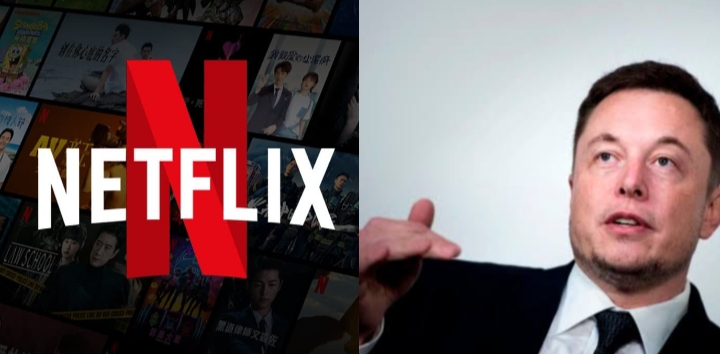Elon Musk’s recent criticism of Netflix has turned into a major storm for the streaming company, leading to a significant financial loss and sparking heated public debate.
After the billionaire urged people worldwide to cancel their subscriptions, Netflix’s market value reportedly dropped by around $15 billion within days.
The controversy began when Musk accused the platform of promoting what he described as “woke and inappropriate scenes” in its shows, particularly in those targeting children.
His comments quickly spread across social media, leading thousands to reconsider their memberships and question the company’s direction.
One of the shows that drew Musk’s attention is Dead End: Paranormal Park, which features a transgender main character.
He claimed that such themes are unsuitable for children and accused Netflix of deliberately pushing a “woke agenda.” His remarks triggered a global discussion online, dividing audiences between those who supported his stance and those who defended the company’s creative choices.
Supporters of Musk argue that streaming platforms have gone too far in promoting content that challenges traditional values, while critics believe his comments amount to censorship and intolerance toward diversity.
Financial analysts described Netflix’s stock performance following Musk’s remarks as one of its steepest declines in recent months.
The fall highlighted how social media can directly influence business decisions and investor confidence. With Musk’s massive online following, even a single post from him can shape public opinion and market behavior almost instantly.
Industry observers have also noted that the incident underscores the growing power of individual voices in shaping global narratives around entertainment, culture, and corporate responsibility.
Beyond the financial setback, the situation has reignited larger cultural debates about the role of representation in media. Advocates for inclusion insist that diverse characters and storylines help young audiences understand and accept differences in society.
On the other hand, opponents argue that entertainment companies should focus on universal storytelling rather than promoting what they perceive as political or social agendas.
This back-and-forth reflects the wider struggle facing creative industries, where balancing expression, inclusivity, and audience comfort has become increasingly complex.
For Netflix, this episode serves as both a warning and an opportunity. The company must now navigate how to uphold its commitment to artistic freedom without alienating sections of its audience. Whether Musk’s boycott will lead to long-term losses or fade as another cultural flashpoint remains to be seen.
What is clear is that one person’s opinion especially from someone as influential as Elon Musk can alter the course of a global brand in a matter of days, showing the unpredictable and powerful nature of modern digital influence.





















Add Comment